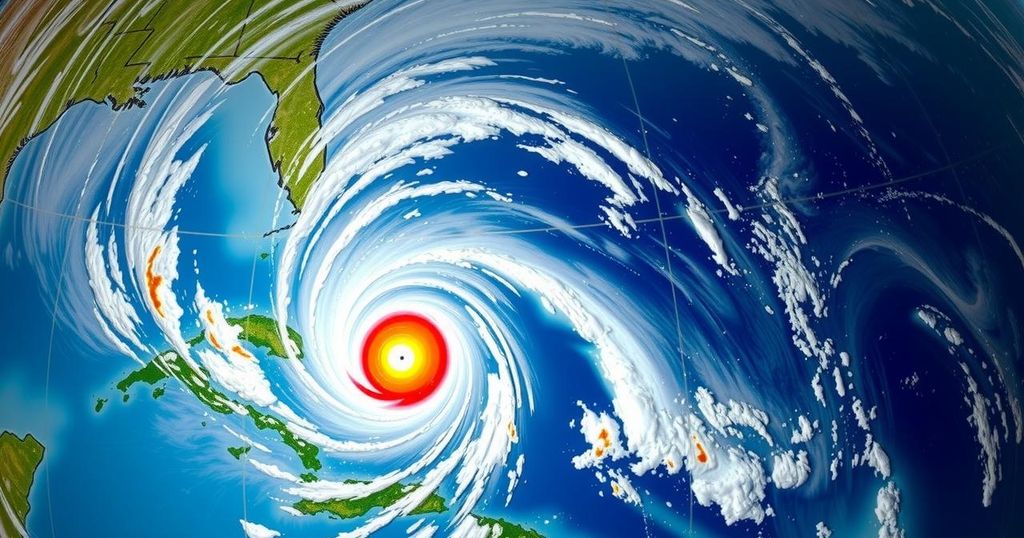2024 Atlantic Hurricane Season Concludes with Record Storm Activity

The 2024 Atlantic hurricane season ended with 11 hurricanes, surpassing the average of seven, and included severe storms such as Hurricane Helene and Milton. Notably, Hurricane Beryl set records as a Category 4 storm in June, while October featured a record-tying hurricane. Overall, the season raised concerns regarding climate change and its influence on extreme weather events.
The 2024 Atlantic hurricane season concluded on Saturday, exhibiting notable activity with 11 hurricanes recorded, surpassing the average of seven. Meteorologists labeled this season as exceptionally active, attributing the heightened frequency and intensity of storms to elevated ocean temperatures. Eight hurricanes made landfall across various locations including the U.S. Gulf Coast, Bermuda, Cuba, the Dominican Republic, and Grenada.
Among these hurricanes, Beryl distinguished itself as the first Category 4 hurricane to occur in June, striking Grenada’s Carriacou Island and resulting in significant damage and fatalities. The storm later intensified into the earliest recorded Category 5 hurricane on July 1. Normally, major hurricanes categorized as 3 or above do not materialize until September, indicating an unusual pattern for this year.
In September, Hurricane Helene wreaked havoc across the southeastern United States, emerging as the most lethal storm to impact the U.S. mainland since Hurricane Katrina in 2005, causing over 200 deaths and an estimated $48.8 billion in damages in North Carolina alone. Additionally, states such as Florida, Georgia, South Carolina, Tennessee, and Virginia experienced considerable destruction.
October brought Hurricane Milton, which escalated quickly, achieving wind speeds of 180 mph, one of the highest ever recorded in the Gulf of Mexico. The torrential rains associated with both Helene and Milton tripled average rainfall rates for September and October in several affected cities, making this two-month period the wettest on record for locales such as Asheville, Tampa, and Orlando.
In November, Hurricane Rafael approached 120 mph, nearly matching the record for the strongest November hurricane in the Gulf of Mexico, while battering Cuba amid recovery efforts from Hurricane Oscar that had previously left the island in disarray. Meteorologist Brian McNoldy emphasized the unusual nature of the storms observed this season, noting the influence of warm ocean waters on hurricane formation.
As Mr. McNoldy stated, “I do not ever point to climate change as causing a specific weather event, but it certainly has its finger on the scale and makes these extreme storms more likely to occur.”
The Atlantic hurricane season typically spans from June to November and varies yearly in terms of storm frequency and intensity. The recent season, characterized by 11 hurricanes, showcased several unusual occurrences, including early and late-season Category 4 and Category 5 hurricanes. Key meteorological factors such as ocean temperature significantly impact hurricane development and intensity, which researchers increasingly link to broader climate trends. This season’s activity reflects evolving weather patterns and their implications for coastal regions.
In summary, the 2024 Atlantic hurricane season was marked by an unprecedented number of hurricanes and significant destructive impact across multiple U.S. states and Caribbean islands. With record-breaking storms occurring earlier and later than customary, the season has prompted discussions on the relationship between climate change and hurricane patterns. Meteorologists continue to study the underlying causes of these developments as they prepare for future seasons.
Original Source: nsjonline.com






